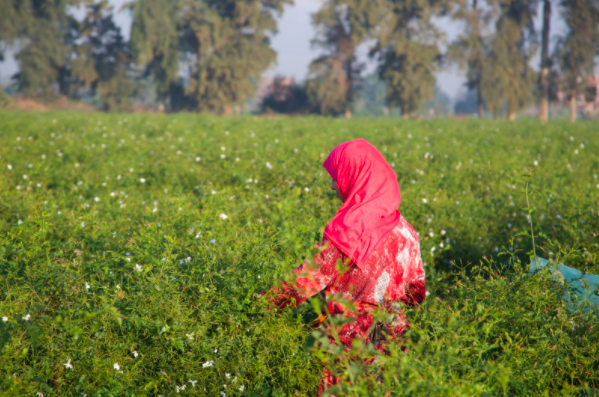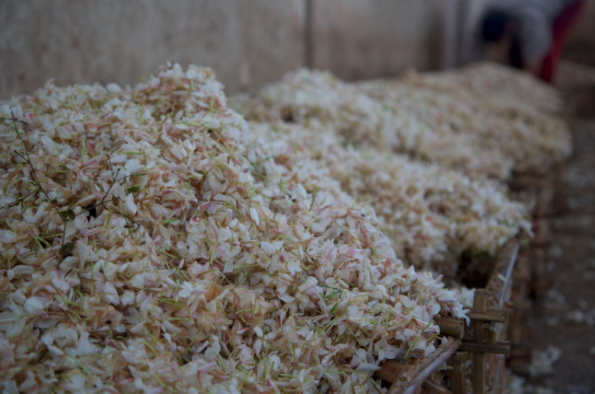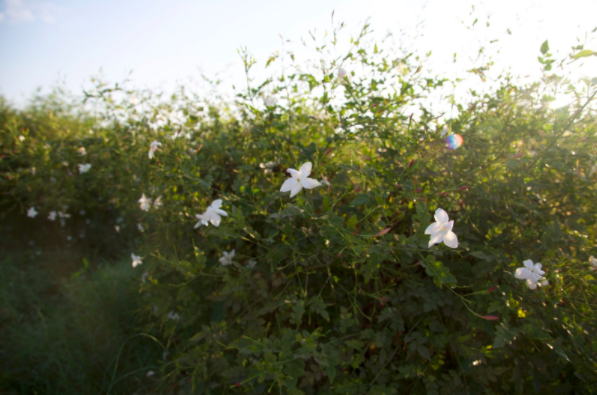JASMINE ABSOLUTE - EGYPT
The women behind the product
Jasmine flowers are known as “Lady of the night”, they release their scent after the sun has set, which is especially captivating during the full moon.
Flowers are collected from around 3am till 10am, any later and they start to lose their smell in the strong sunlight. Each blossom is collected by hand during the 7 month season.
In the middle of October at 3am, Jasmine fields are totally dark, wet, cold and very quiet, the smell is overwhelming and ever so beautiful.
At around 5:45am, nature wakes up and completely alters the atmosphere. Flower pickers begin to talk and laugh, and collectors get ready to receive the first flowers.
On average, a skilled picker can collect around 3kg of flowers per day. Lush need 1000kg of flowers to make 1.4kg of Jasmine Absolute.

After collection, blossoms are loaded into big vessels to begin the extraction process. Firstly, a solvent is added to the plant material to help extract the fragrant compounds.
This solution is filtered, then frozen, then filtered again to produce a waxy mass called concrete. The next step is to add ethanol to the concrete to capture even more fragrant compounds, before then evaporating the ethanol. The end product is called Jasmine Absolute.
Our supplier is passionate about composting, and so flowers that were used for the extraction process are never wasted, they all get mixed with other compost materials and after a few months are used as compost for the next year’s crops.

They run workshops for local farmers, many of whom are women, highlighting the importance of composting, with practical demonstrations on the ground such as;
- How to look after wormeries;
- Explanatory workshops about pesticide hazards, as well as organic alternatives to conventional pesticides with practical demonstrations - which are often made at a low or no cost to the farmer;
- Waste management and recycling concepts
Introduction of Organic practices especially resonates with families, as this often has health benefits for the whole family and children.
To safeguard the education in rural areas, our supplier supports a school for local children where they can gather knowledge and experience for the future.
Overall on the organic farm 50 people are employed, with a further 5000 local farmers who produce the flowers for our supplier’s production.


